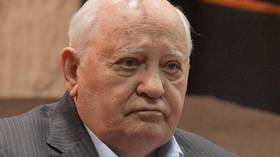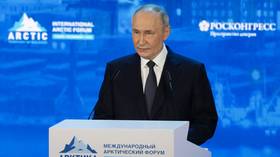How the Soviet collapse led to a Russian national revival
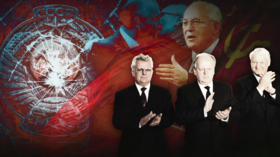
Thirty years have now passed since the USSR collapsed. The largest state in the history of the world has left a mixed legacy and much of the promise of the Perestroika-era has never been fulfilled.
Russian President Vladimir Putin has touched upon the collapse of USSR multiple times, and the wider public has strong feelings on the subject. The latest VTSIOM poll shows that 58% want to see the former giant country reunified. Almost unanimously, they believe that in 1991, there was a chance to keep the Soviet Union as a single economic and political space. In this article, RT discusses the consequences of those dramatic events for the Russian people.
To this day, the history of its breakup remain relevant to people in Russia and in former Soviet republics, as the end of a strict dictatorship also signaled national revivals. Despite their dominant role in the USSR, as the largest member state, this applied to Russians as much as any of the other nationalists in the union. Perhaps even more so, as Russian identity was suppressed by the Bolsheviks. Indeed, nobody from Moscow or Saint Petersburg ever led the Soviet Union, and the two longest serving heads of state, during the period, were a Georgian (Joseph Stalin) and a Ukrainian (Leonid Brezhnev).
While many were left behind by transition to capitalism, and the 1990s was a decade of great distress, it can be argued that Russians have never been as free, or as prosperous, as they are today. Also, the fact that Moscow no longer has to subsidize Socialist parties throughout the world, or as many poorer far away "republics," has had obvious financial benefits.
***
Russian philosopher Vasily Rozanov died of hunger in Sergiyev Posad, near Moscow, less than 18 months after the October Revolution. He never accepted the Bolshevik coup and the toppling of Tsar Nicholas II in February 1917.
“Holy Rus fell to pieces in three days,” Rozanov wrote about the death of the monarchy. Ironically, a similar sentiment could be shared by the descendants of the Bolsheviks some 70 years later; 16.5 million members of the Communist Party, years of nurturing the ‘new Soviet man’, absolute state control over law enforcement and security agencies – nothing could prevent the collapse of the regime known as the Red Empire by both its citizens and the numerous Russian migrant communities.
The 70-year cycle ended. Muscovites of 1917 would have had little trouble understanding the feelings of their 1991 counterparts. They, too, lived through a tumultuous time, feared the uncertain present, and looked into the future with hope.
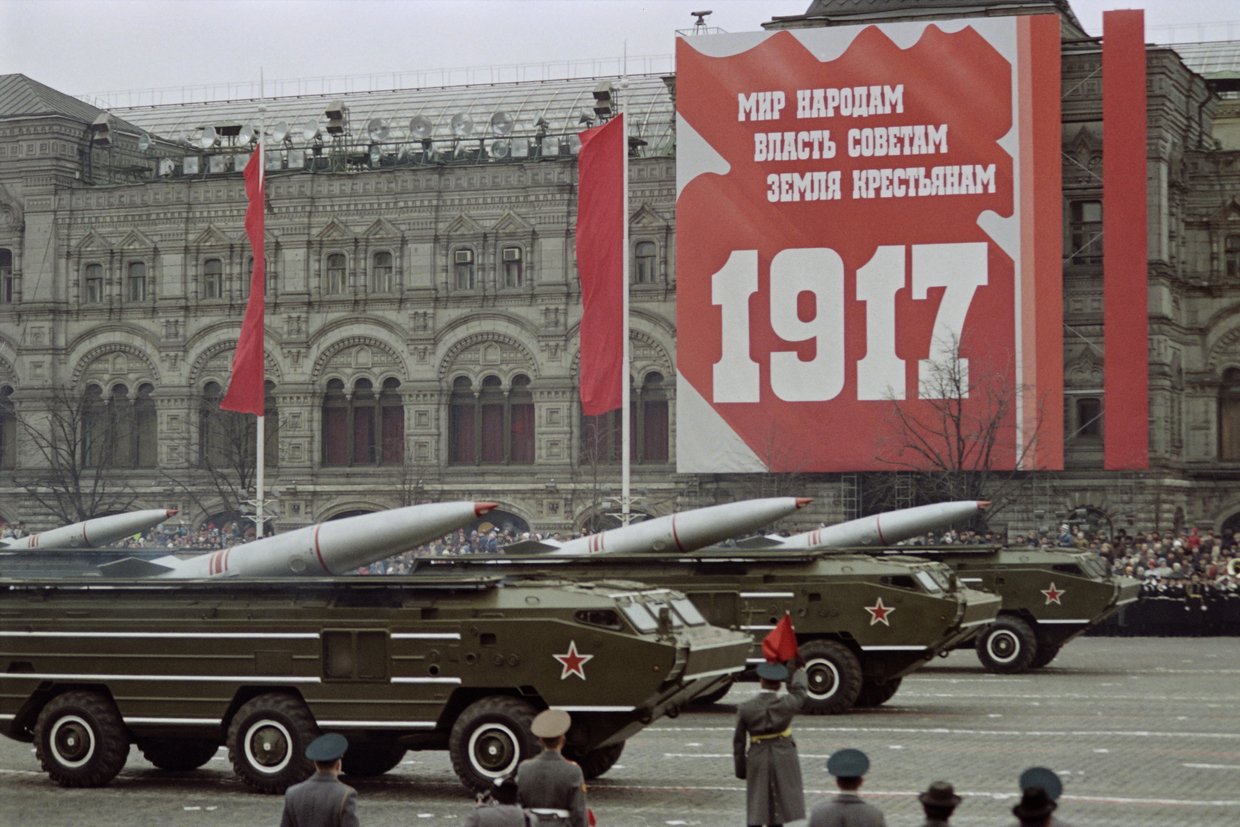
Of all the outcomes of the collapse of the Soviet Empire, the loss of territory is the first that comes to mind. Russia found itself surrounded by independent states, each requiring its own foreign policy approach. Moscow’s territory shrunk back to its 17th century borders. Not all of the republics wanted to distance themselves from Russia. On March 17, 1991, nine out of the 15 republics held a referendum on the future of the Soviet Union; 76.4% voted to stay. Even in Ukraine, with its active dissident and anti-Soviet movement, 70% of the people supported this decision.
The dissolution of the once united country has made the Russians the most numerous of the divided people in Europe. Political analyst and philosopher Aleksey Dzermant in his interview to RT said that after the dissolution of the Soviet Union, many Russians were stripped of their rights in new independent states. They’ve been losing their social status and influence in the last 30 years.
As the Soviet Union was formed, administrative borders rarely matched national ones. Belarus and Ukraine were given entire regions by the Bolsheviks, while some Central Asian nations acquired statehood for the first time in their history. This resulted in numerous cross-national conflicts that accompanied the collapse of the Soviet Union (Nagorno-Karabakh, Transnistria and Abkhazia, the Fergana Valley riots). Russians have become the largest national minority in Ukraine (22.07% of the population in 1991), Kazakhstan (37%), the Baltic states (30.3% in Estonia, 33.8% in Latvia and 8.6% in Lithuania), Kyrgyzstan (21.5%) and Moldova (13%).
These issues persist to this day. Many Russians in the Baltic do not have citizenship in their countries of residence: they are treated like second-class subjects, are banned from certain professions and cannot participate in political life. The Donbass war has been, in many ways, rooted in the national policies of the first Soviet leaders. The Russian community in Kazakhstan had its share of hardships, too, when in summer of 2021 local nationalists organized “language patrols” and forced service workers to apologize on camera for using the Russian language.
Still, in some ways, Russia was able to benefit from the collapse of the USSR. Before the dissolution, the Russian Soviet Federative Socialist Republic was the strongest economy in the Union. In 1990, it accounted for 60.33% of the aggregate GDP (followed by Ukraine with 17.8%). The RSFSR subsidized all other republics, including Belarus, Ukraine, and Kazakhstan, which were all industrial powerhouses in their own right. However, Russia’s own population did not fare particularly well – the fruits of its labor were redistributed among other less developed republics. Gaining independence cut them off Russia’s ‘balance sheet’, so the country was able to focus on its own development and start investing in itself.
According to executive director of the international monitoring organization CIS-EMO Stanislav Byshok, PhD, it was the ‘Stop feeding the other republics!’ slogan that brought enormous popularity to Boris Yeltsin. “The ultimate question of why the Russians refused to save the USSR from collapsing boils down to the fact that they essentially had to save it from themselves – from their own dissatisfaction with Russia’s status as the financial backer for the entire union,” Byshok said. The expert believes that, in the hypothetical scenario where the Soviet Union survived after 1991, it’s likely that Russia – which was already struggling economically – could have been simply overwhelmed by the pressure to bankroll the other republics. “People who blame everything on the 'wild 1990s' tend to forget that the standard of living had started falling long before the dissolution of the USSR – a factor that had, in many ways, contributed to the collapse,” said Byshok.
The Soviet national policy, which discriminated against the Russian people, was finally gone. The Bolsheviks had tried to create a new ethnicity – the ‘Soviet people’ – with Russians, as the most numerous, serving as its foundation. To do this, the Bolsheviks suppressed their identity so they could glue together all other nationalities – nationalities that were able to raise their own intellectual elites, create their alphabets and national cultures thanks to the Bolsheviks. When the Soviet Union collapsed, the Russian culture restored its status and could finally move forward.
In an interview with RT, Byshok explained that the Soviet nationalities policy closed off some paths for Russian national development while opening up others. The concept of a greater Russian nation, heavily promoted in the final decades of the Russian Empire, was replaced by the concept of a ‘fraternity’ of Eastern Slavic peoples – united, but different. The expert believes that, for the Russians in the USSR, just as for the Serbs in the former Yugoslavia, one’s ethnic identity did not contradict the notion of ‘civic’ identity as a Soviet person or a Yugoslavian. However, Byshok noted, Bolshevik ideology stated that non-Russian peoples of the USSR were first supposed to self-identify (with the help of the state) as independent nations, and then, as it were, realize the need to abandon one’s narrow national identity in favor of an all-union one – and ultimately identify with the world’s proletariat. “That didn't work out,” he said.
The breakdown of the unified political space wasn’t just a matter of culture and ethnicity. The entire Soviet economy was based on the concept of the division of labor. Specialized industrial clusters were distributed across the Union, so the dissolution meant losing major industrial centers. Production of rocket and aviation engines was left with Ukraine, part of the automotive sector with the newly independent Latvia, and the Baikonur Cosmodrome ended up in Kazakhstan.
The Russian economy faced a number of other challenges after the collapse of the USSR. Former Communist Party members and ex-directors of enterprises actively participated in privatization, which resulted in “wild capitalism” taking a grip on Russia from the very beginning. Oligarchs formed entire business empires, fusing them with a weakened central government. This did not add to the stability of the state, and the problem was dealt with by as late as the mid-2000s. Other former Soviet republics, Ukraine included, faced similar issues. In Ukraine, however, oligarchs maintain a strong influence on politics to this day.
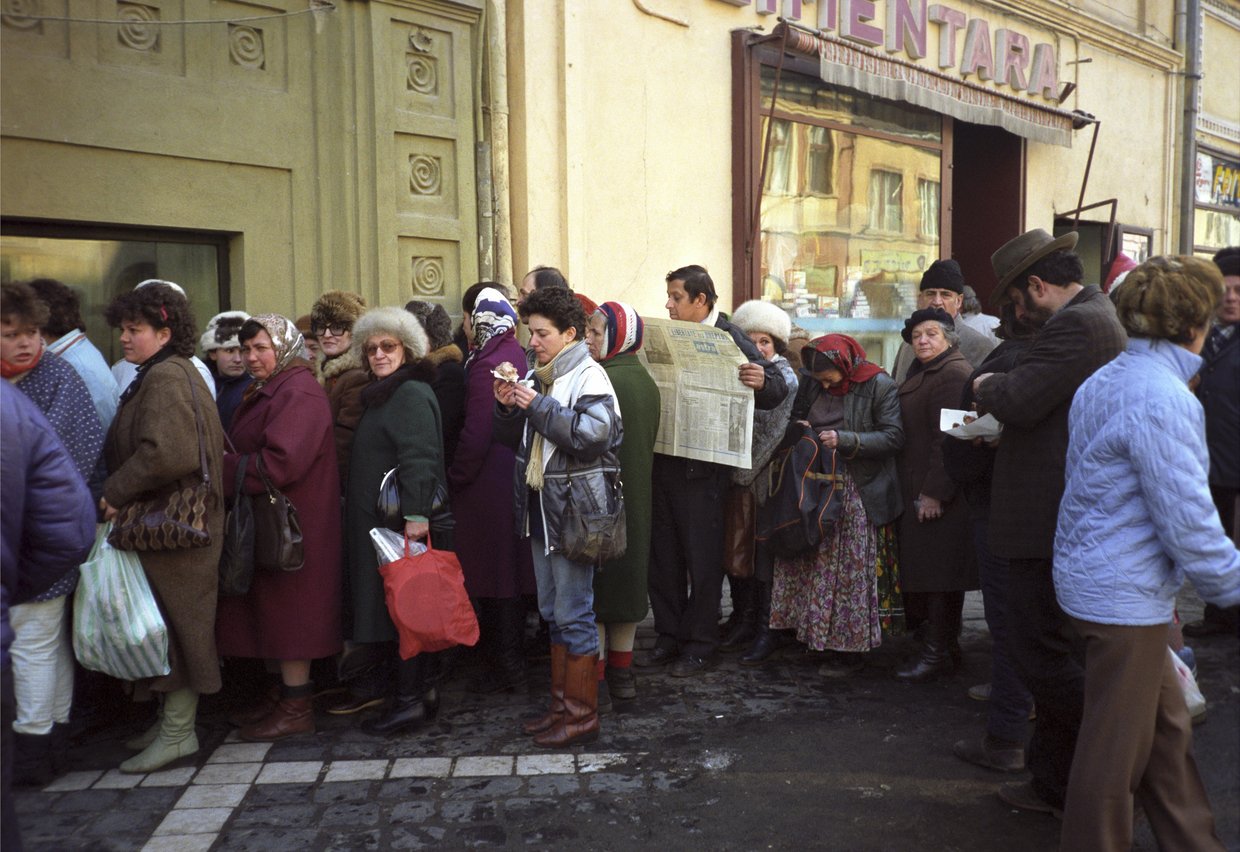
Eventually, Russia overcame these transitional pains. Today, the country boasts a socially-oriented economy (albeit with a considerable state participation) and developed financial and IT sectors. On average, Russians are 1.5 times wealthier than the RSFSR citizens before the collapse, according to official statistics, which generally underestimate real finances in the former USSR. Still, the inequality brought about by capitalism remains high.
There is but another post-Soviet malady that can be traced to the economic crisis of the 1990s. The Soviet Union had invested heavily in socialist movements around the world. Socialist countries in Asia and Africa received loans and were able to get goods at reduced prices; Moscow provided them with experts and supplied all the necessary equipment. Eastern European countries also received help. Massive amounts of money were spent.
Economic problems of the 1990s and the transition period undermined Russian influence in those countries. Money and effort ended up being spent for nothing. To Mikhail Gorbachev, promises were enough, so he did not demand any legally binding guarantees from NATO not to expand to the east as the socialist republics of Eastern Europe fell and the Soviet Union had to withdraw its troops. Surely enough, the promises were quickly broken. Many former Soviet nations joined the bloc, granting it direct access to the Russian border. This remains one of the key national security issues for the Russian government, and it will decide the nature of Russia’s relations with the West and the former Soviet republics for years to come. In many ways, it was the desire for NATO membership that led to conflicts with Ukraine and Georgia.
Dzermant pointed out that the dissolution of the USSR dealt a serious blow to Russia’s global influence and escalated a number of conflicts along its borders. According to the expert, Moscow had to build a new security system, and the process is not completely over yet.
Russia has definitely benefited from the fall of the Iron Curtain. Its people were allowed access to Western culture and technologies, and were able to join the scientific discussions of international academia. Contemporary Russian culture has also been recognized in the West, but there still hasn’t been a political rapprochement.
When the Soviet Union was on its last legs, there were talks about the “common European home,” with Russia as an integral part of the new concept. The vision Charles de Gaulle had of a Greater Europe from Lisbon to Vladivostok appealed to Gorbachev and his government of the newly independent Russia. In the late 1990s-early 2000s, some even suggested that Russia should join NATO to help fight global terrorism.
Dzermant thinks that it was Gorbachev’s shortsighted policy that led NATO to believe that it was free to do as it wished, and its activities didn’t have to abide by any law. “Integrating former Soviet republics in NATO’s sphere of influence definitely threatened Russia’s security,” he commented.
But as soon as Russia overcame the crisis of the 1990s, rebuilt its economy and became active on the international stage, the world immediately reverted to a bipolar system. All ideas of rapprochement were abandoned. Western politicians viewed Russia as the heir to the Soviet Union that sought to expand its ideology and political system to the rest of the world.
Dzermant believes that restoring national ideology in its Soviet form is completely impossible today, since the information space is very diverse and numerous ideas are constantly competing. However, he is convinced that Russia, just like any other country, must have its own paradigm that would define the country’s global interests and understanding of justice, name its potential allies and describe its worldview. “This would be our core, our foundation. But others shouldn’t be pressured into it, it must be promoted through soft power mechanisms,” he added. That’s how Russia could explain itself and its actions to the world.
Byshok believes that the absence of ideology in modern Russian politics is a major advantage. “Some are of the opinion that Russia is in dire need of some kind of grand overarching idea – and, by extension, some self-imposed global mission or duty. This opinion is based on nothing but ideological preferences of the people expressing it,” he said.
Byshok argued that the left sees Russia as a country that champions a fair multipolar international order, the right sees some elements of conservative rhetoric and politics, while the Kremlin is trying, with varying success, to balance and reconcile the ‘red’ and the ‘white’ aspects of Russia’s historical experience. “Naturally, Moscow relies on certain ideological notions in domestic and foreign policy now and then, but that’s an ad hoc approach – it depends on the situation,” said the expert.
Russia has changed a lot over the past 30 years. It is no longer a state with a strict ideology. Moscow’s foreign policies have nothing to do with spreading a ‘global revolution’ or communist ideals; Russia’s diplomats are pursuing political and economic goals that deal with national security, scientific and economic development and protecting the Russian-speaking population of the former Soviet Union. For Russia, the main lesson of the 30 years since the collapse of the Soviet Union is that it does not want to restore the communist system, but it cannot completely renounce its past, too. Russia’s current political and economic system is much closer to that of Western ideals compared to 30 years ago. And like any Western nation with great history and culture, Russia wants to be powerful enough to be able to protect its own interests.
